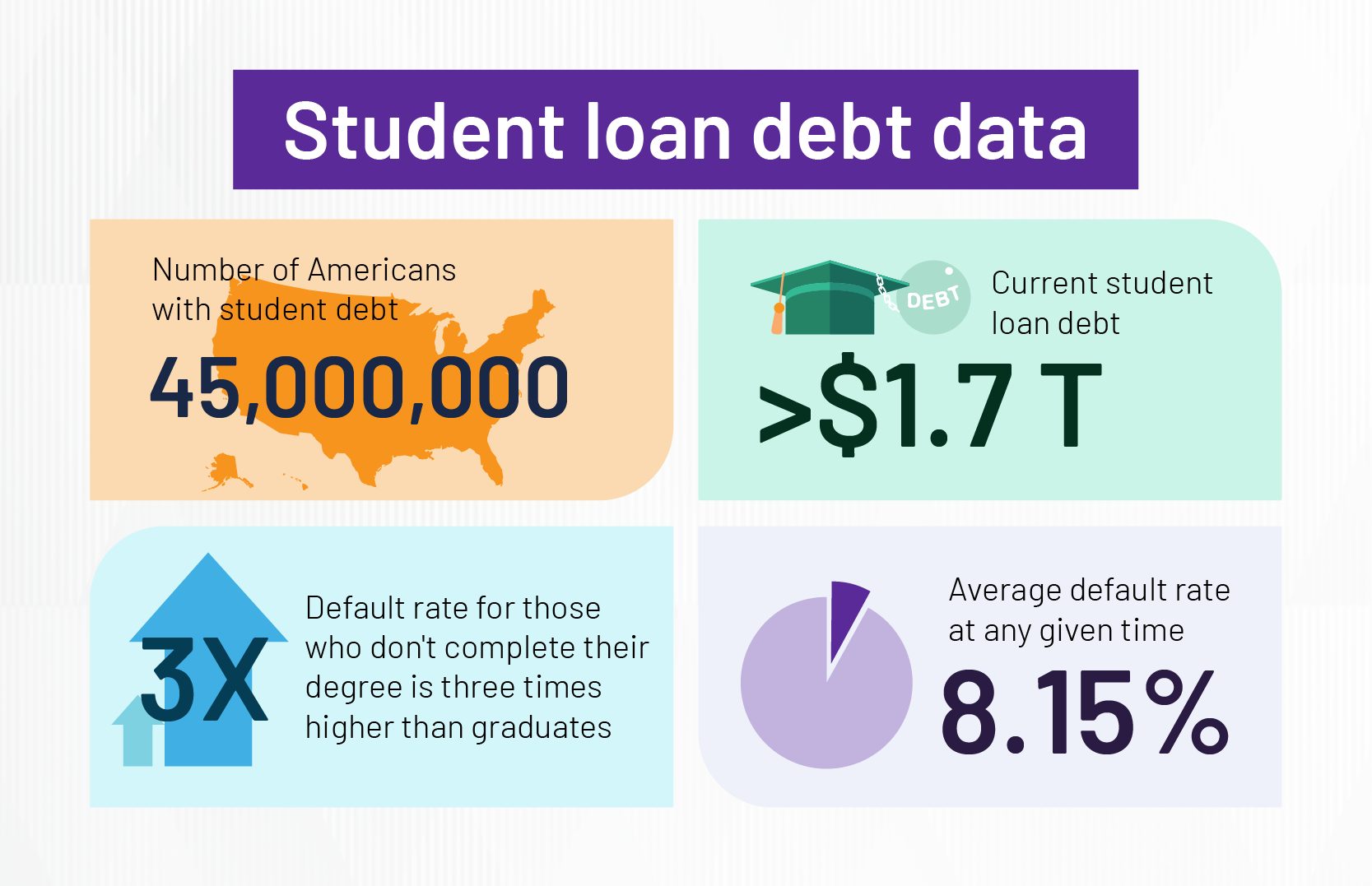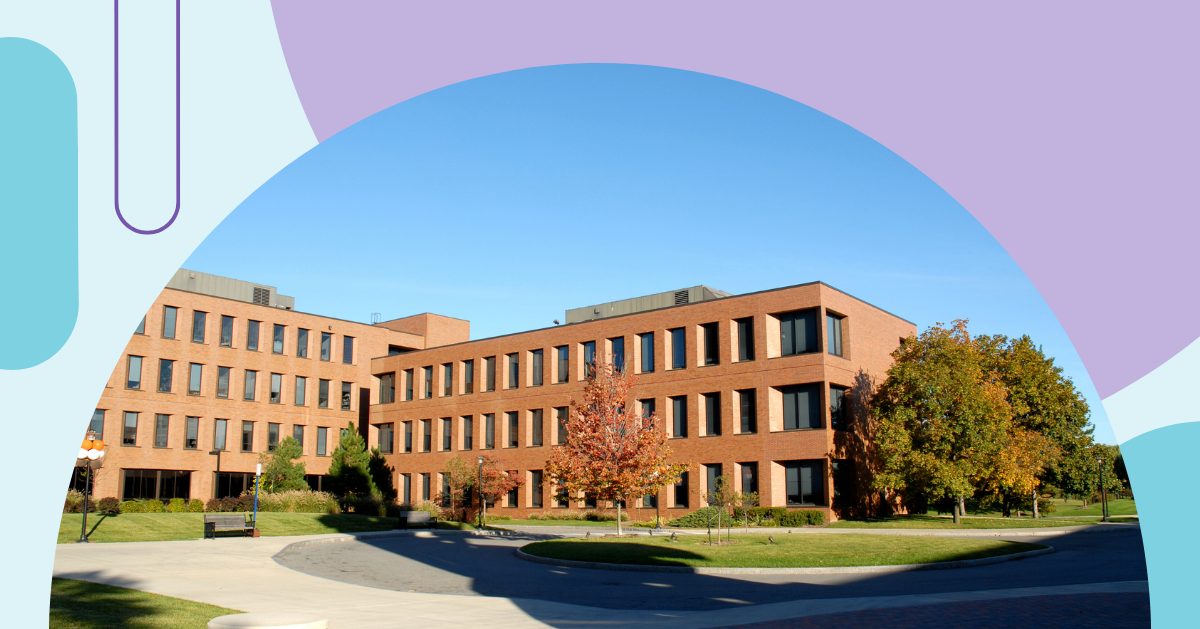Student affairs describes a team of professionals who support individual students’ personal and academic development in post-secondary education institutions like universities and colleges. This is not a new concept — initially, student affairs described how a dean or other official would be involved with their students and take on a guardian position. Over time, this role developed to become more encompassing of student needs. Officials started taking a holistic approach to establish resources that aid students’ emotional, mental, and physical success and help them reach their full potential.
Student affairs and services in higher education that promote stimulating and welcoming environments encourage student success. These services are actively growing and are expected to become more involved in the upcoming years. Although many schools are unprepared for the shift in increasing responsibilities, there are many things your institution can do to begin preparation.

What Is the Importance of Student Affairs?
Student affairs help students develop ethical standards and values. Institutions should focus on individual students rather than seek one-size-fits-all solutions to make their student affairs successful. By analyzing your institution’s current strengths and weaknesses and closing the gaps in student experiences, you can uncover valuable information that provides insight into how to improve academic performance and student life. Higher education institutions can use the information they gather to structure effective educational programs and develop a rigorous curriculum that engages and challenges students to reach their full potential.
One of the most critical aspects of student affairs is offering valuable resources to students. Beyond offering mental and physical health services, institutions that provide academic counseling and guidance encourage students to discover their interests and follow their own educational paths. A structured and complete student affairs administration is vital to keep this process moving smoothly.
When students feel their institution meets their needs and understand what resources are available, they’re more likely to develop a connection with their studies and less likely to contemplate removing themselves from the school.
What Is the Role of Student Affairs in Higher Education
Student affairs and higher education work hand in hand. The role of student support services in higher education is to prepare students for a lifelong journey of self-exploration and growth. These administrations actively contribute to the student’s academic success and learning experience. Student affairs administrations create stimulating environments that boost performance and help meet school initiatives, reducing dropout rates and encouraging students to feel connected to their institution.
The role of student affairs in higher education is to:
- Engage students with education: Students are encouraged to relate their experiences to their education. Doing so allows them to draw deeper connections, feel attached to the material, and begin to understand other perspectives.
- Develop student values: Effective student affairs administrations are committed to responsible leadership, equality, freedom, dignity, honesty, justice, and civility. This promotes a welcoming and safe environment while positively encouraging students to build their future.
- Build inclusive and supportive communities: Schools that value diversity and welcome different perspectives foster a sense of belonging amongst their students. These communities encourage students to recognize accomplishments and form debates to understand different perspectives in a respectful way.
- Develop educational partnerships: Institutions can create more advanced learning opportunities by partnering with other schools. These partnerships also remind both institutions of their commitment to delivering their students a quality education.
- Achieve institution initiatives: As students navigate an environment that encourages them to thrive, institutions can see an improvement in assessment scores and other desired educational outcomes. These results can lead to more significant future goals and help structure program designs.
- Improve student performance: Effective student affairs will acquire high-quality information for their students. They will analyze student performance and use the outcomes to structure educational programs and increase student achievement.
- Establish high educational expectations: Learning occurs inside and outside of a classroom. Student affairs administrations can address student behaviors to boost psychosocial and intellectual development. They can correlate their performance with institutional achievements.
Why Many Colleges Aren’t Prepared
Despite the importance of student affairs, many colleges and universities don’t feel prepared for the expected increase in responsibilities. Studies regarding the future of student affairs have shown that the duties of student affairs administration are likely to increase in the next few years. Yet, many institutions are not prioritizing finding the necessary staff for the job. Higher education institutions are not dedicating enough time to collaboration regarding student affairs within their organization, which impacts the holistic experience of students.
Many colleges feel underprepared for the increase in student affairs duties in the following areas:
- Fundraising
- Technology
- Online supports
- Grant management
- Assessments
Acquiring the necessary funds to support student affairs administrations may be among the most challenging criteria. Along with paying staff to handle their responsibilities, technology costs are rising, and students require even more individualized resources.
Finding the right technology and online support is crucial to student success. Large institutions may find it difficult to quickly acquire student information that can help identify where they may be struggling and excelling. Many institutions do research by hand or rely on slow software that does not track trends. Software such as Watermark Student Success & Engagement can easily combat this problem by identifying when students need support, allowing you to track trends over time and encouraging you to streamline data, including assessment scores and individual student trends.
Assessing your student affairs administration will also require time and resources. Your student assessments will justify your costs, programs, and services. You will need to dedicate faculty and resources to researching and analyzing problems you see in your institution to close the gaps and reach school initiatives.
How to Prepare for a More Involved Student Affairs Department
The rise of student affairs is not going anywhere, and the best way to combat the influx of responsibilities each institution will face is to prepare for a more involved administration. Finding the right resources and dedicating time and funds to each part of your program may be challenging. Still, your administration’s role is significant, and your individualized student resources will encourage your student body to continue the educational path.
Understand Your Holistic Approach
The first step in preparing for a more involved student affairs department is understanding the current needs of your administration and programs. Learning happens inside and outside the classroom. Students need to feel comfortable and confident in your institution’s ability to provide them with the resources they need to feel safe and secure. Evaluating where students need more support and identifying where there is a lack of involvement from the institution will help you determine what resources you need to dedicate to closing those gaps.
For a truly holistic experience, your institution must recognize each student’s financial, safety, housing, food, mental health, physical health, and relationship circumstances. You may need to implement summer programs, offer more financial assistance, or otherwise aid your students to give them an educational experience that does not feel transactional.
Connect Student Affairs With Learning
If you currently do not have technology that allows you to streamline the process of analyzing student trends over time, you should prepare to invest in some. A primary focus of student affairs is looking at trends to locate where students are excelling, struggling, and needing additional challenges. Outdated technology does not permit you to compare information throughout the years easily and won’t provide solutions to the difficulties you’re facing.
Student Success & Engagement enables you to turn existing systems into actionable insights, identify immediate trouble spots, and use research to establish intervention strategies. Additionally, you’ll be able to identify where a student may be at risk of dropping out and determine prevention tactics in real-time.
Partner With All Faculty
Forging alliances within your institution will be a valuable part of a successful student affairs administration. After all, students will enroll in classes and participate in activities from every branch of your college. Creating partnerships will make your institution more inclusive, encourage collaboration amongst faculty members, and allow for more diverse thoughts and ideas to present themselves.
As you work with more members of your educational community, you may reach your goals much quicker and find it easier to monitor student progress. Additionally, department leaders will be able to describe the problems they see in their curriculum and student engagement, leading your administration to find solutions quicker.
Budget for Funding
Anticipating increased funding for student affairs can be challenging, especially for schools that may struggle with finance management. Increasing your spending on student affairs will be vital for establishing efficient and effective resources that promote student success and wellness.
Areas that you can expect to need funding include:
- Enrollment management: These staff members will focus on attracting collegiate-ready students that add diversity to the student body. They will also need to prepare to offer assistance to international students or immigration services.
- Campus recreation: Your campus should help develop your community. Your institution should encourage positive development in physical wellness, personal growth, athletic performance, and leadership skills.
- Educational opportunities: Your institution should offer success resources for first-generation students or those who have low-income families or are an ethnic minority. Programs that prepare them for college and provide additional assistance will help them succeed.
- Financial aid: Every student has a different background, and financial aid packages should be relevant to each student. While you may offer the same standard assistance for high school GPA or SAT scores, each student should receive additional assistance based on their educational and financial background. These amounts will differ for each student to accommodate their needs.
- Registrar: The office of the registrar will handle transcripts, enrollment requirements, transfer work, and other degree completion paperwork and assessments. They may need to list classes that count towards transfer credits or offer additional courses to keep students on track for program completion.
- Career services: You will need to have dedicated staff who can offer academic advising to students. Those who are undecided about their major, are seeking internships, or preparing for a career or graduate school will need quality resources to help them succeed.
- Counseling center: A counseling center will give students an opportunity to reach out for help when they’re struggling. Counseling resources promote a safe campus culture while aiding students’ growth and wellness. Additionally, students can find help dealing with stress, reporting crime, balancing school work, and otherwise feeling safe on campus.
- Health Services: A health center or similar services will provide students with the resources to receive testing or medication should they require them. You should offer primary care to all students.
- Health and wellness: You should offer an abundance of wellness opportunities for your students, including creating organizations for LGBTQ, nontraditional, multicultural, and veteran populations, Greek-letter groups, and student media and legal services.
Establish Assessments
Assessments will give you insight into what’s working and what’s not. You will need to evaluate student trends and determine how to combat those showing negative results. You may want to discover why students drop out, why specific programs have a high degree completion rate while others do not, or why most students move to off-campus housing after their first year.
You may need to give specialized training to some staff members to research and analyze these topics effectively. You may need to conduct surveys, review information over the course of several years, and dedicate software or staff to record data during the following several semesters and beyond. The more answers your administration seeks, the more gaps you will be able to close to combat the issues you’re noting.
Create Success Services
Your students will need a large variety of resources that help them complete their studies and feel confident in their abilities. From the beginning of their academic career until well after completing it, your students should know where they can locate resources and carry developmental knowledge that they will use in their professional and personal lives.
Career services can aid students in finding internships and job openings while explaining the importance of interview skills, well-written resumes, and recognizing their strengths. Commuter services will provide students with a means of transportation to classes, school events, dining facilities, student organizations, health facilities, and their homes. Community service programs will teach students to be productive members of society and encourage them to find educational opportunities outside your institution.
Disability services are responsible for ensuring students with disabilities have access to every campus event, organization, and resource. Offering audiobook textbooks, transcription services, transportation, and other additional help will help promote student success. All these services and any others you decide to implement will guide your students down the path to success and help them develop essential life skills.
Request a Demo of Watermark Student Success & Engagement
Watermark provides data measurement, collection, and analysis software for post-secondary institutions. You can use our software to determine learning outcome measurements, perform research, and prepare educational and institutional plans.
Our software can help you identify students that need immediate assistance, provide actionable solutions, and guide prevention strategies. We can help you optimize degree completion and keep your students engaged in their materials. You can easily track attendance, receive alerts, and create custom reports with Student Success &Engagement.
Let us make your transition to a more involved student affairs administration effortless. Request a demo of Student Success & Engagement today.















































































































































































































































































































































































































